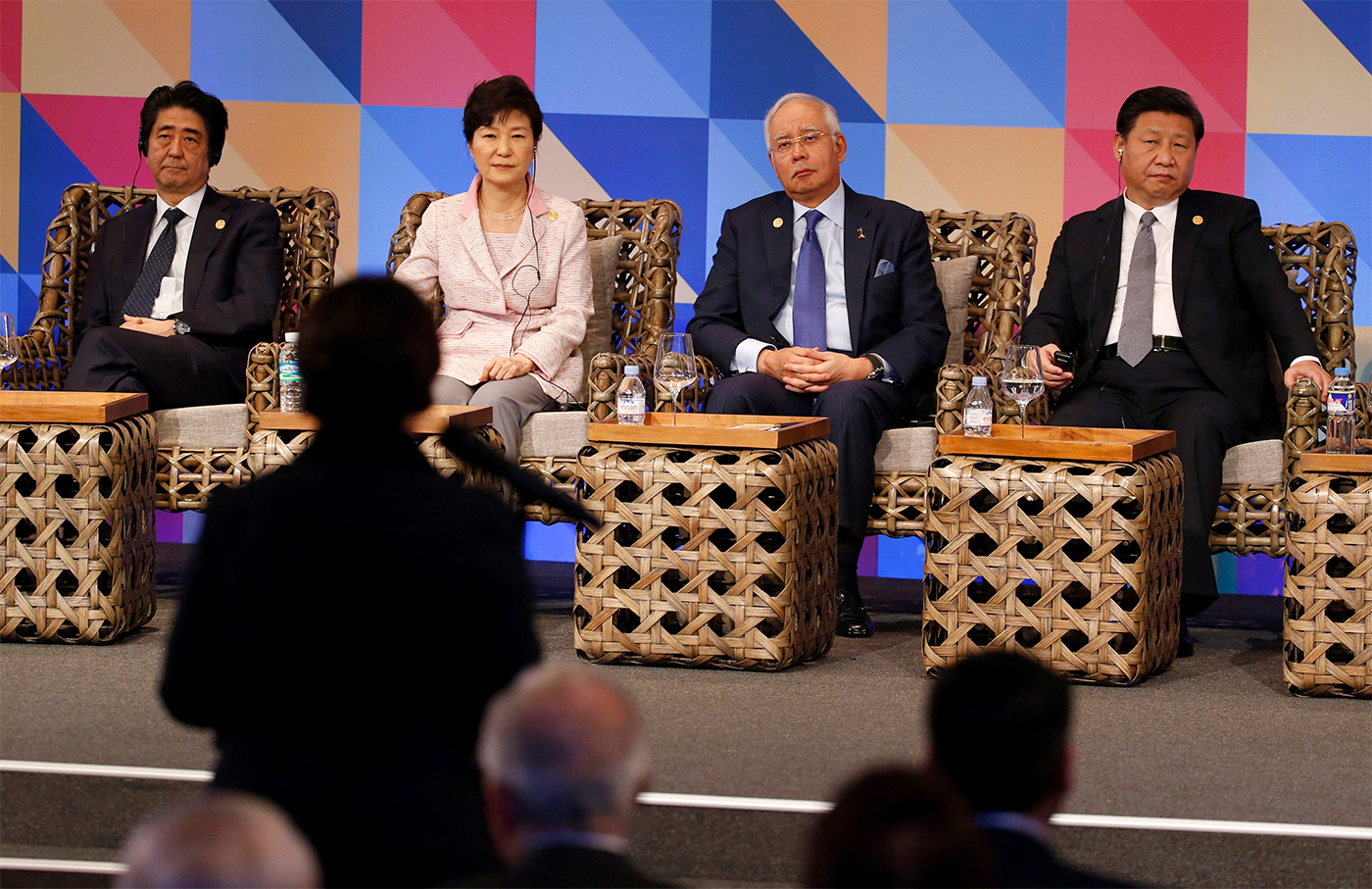«Term of Office Extension» Mission in Northeast Asia
(no votes) |
(0 votes) |
By circumstance, three countries of Northeast Asia — China, South Korea, and Japan — are being marked this autumn by the attempts of political elite to reform the existing regulations binding the term of office of the executive branch representatives. «New Asian Perspectives» blog gives an overview.
The country overview should start in a reversed alphabetical order, from major range of achievements in this area to minor. At this point the Prime Minister of Japan Shinzo Abe has been the most successful in the issue raised. In his case the rules of the governing Liberal Democratic Party are about to be amended allowing S. Abe, certain restrictions being eased, to stand as candidate for the Party President for the third time in September 2018. Technical approval has to be received at the party convention in March 2017, though the amendments having been made will give S. Abe the green light to stay in power until 2021.

REUTERS/Wally Santana/Pool
Japanese Prime Minister Shinzo Abe, South Korean President Park Geun-hye, Malaysian Prime Minister Najib Razak and Chinese President Xi Jinping
Extension of term of presidency in LDP provides no warranties for S. Abe — as Japanese political class has traditionally been quite factious — and would rather signify a temporary balance in his political position in the short-term. The PM has earned support from the party Secretary-General Toshihiro Nikai, two of the potential successors — the Minister of Foreign Affairs Fumio Kishida and the Minister of Defense Tomomi Inada — are being S. Abe’s allies and can compete inter se not challenging his authority in the meanwhile. Other party competitors like the former Minister of Defense Yuriko Koike who is actively growing into the role of Tokyo city manager and is busy preparing the Eastern Capital for the Olympic Games 2020, and another former Minister of Defense Shigeru Ishiba who made no fuss about these discussions, don’t challenge S. Abe either.
However, if desired, one can trace a gradual framework preparation for further criticism in Y. Koike’s rhetoric with all her piety towards the current party leader and companion. The governor of Tokyo has recently published a program article where she stated the underlying 3R principle for the Olympic Games preparation: Reduce ineffective expenses, Reuse the facilities instead of building new ones, and Recycle. On the one hand, the principles listed match with the well-known Japanese quality control and effectiveness, though on the other hand, they seem to make a dig at the Prime Minister being supportive of large-scale infrastructure projects and their operators. Moreover, if S. Abe holds his position till 2021 and hosts Olympics as the Head of Government, he will not only make his grandfather’s, a former Prime Minister Nobusuke Kishi, shattered dream come true, but will also beat the period of staying in power record among all Japanese prime ministers. This long-lasting, on Japanese scale, term of office will contrast with the annual ministerial merry-go-round of the 1990s and 2006-2012.
Meanwhile, according to some experts, a similar stratagem is keeping the Secretary General of the Communist Party of China Xi Jinping busy. Though there are as many speculations as specifics about its practical implementation. The issues of Xi’s term of office as well as strengthening discipline were at the top of the October Communist Party Plenum agenda. XIX Communist Party Convention in Autumn 2017 is expected, on the one hand, to confirm Xi’s leadership for the second 5-year term, and on the other hand, will clarify the preliminary line-up in the sixth generation of Chinese leaders who aim to enter the office in 2022.
Though after Deng Xiaoping the Chinese ministerial rotation has been rather regular and was preserved by both Jiang Zemin and Hu Jintao; while Xi Jinping, according to the media, is considering the possibilities to retain power after 2022 resigning from presidency and staying as a Communist Party Secretary General and Central Military Commission Chairman. Xi’s anti-corruption fight not only strengthened his domestic leading position by neutralizing his potential competitors, but also weakened the checks and balances system supporting this rotation in China.
South Korean top leadership also had similar ideas in October, though a sudden corruption scandal engulfing the President of South Korea Park Geun-hye aggravated the situation. On October 24 Park initiated a discussion and made a program statement regarding the possible changes in the constitutional provisions that limit presidential term to one of five years. A day later, by circumstance, Park admitted in public to having shared some confidential documents of national importance with her friend counsellor Choi Soon-sil, who doesn’t hold any public office.
As a result, the rating of the current president — stated to be the most powerful woman in Eastern Asia in 2013-2014 by Forbes magazine — dropped to 17%. Last weekend the corporate state witnessed anti-corruption demonstrations of thousands of people, who also voiced their plea for Park’s resignation. Will the Head of South Korean State continue her presidency as a «very lame duck» after public apologies being made, or step down pre-term? She is unlikely to have strength for the constitutional reform, though formally it wouldn’t apply to her. Nonetheless, she has brought a sensitive issue to the agenda. Her successor might continue implementing the initiative when the dust settles, the UN Secretary General Ban Ki-moon being named as one of the possible successors.
It is too early to estimate the consequences of this turbulence in South Korea for Moscow, though a lot is at stake for Beijing and Tokyo regarding Pyongyang threats and a milestone agreement between Abe and Park regulating the urgent issue of Comfort Women. Though Abe’s and Xi’s time in office might signify a growing possibility of current regional tendencies retention and an opportunity for broadening the horizons of long-term foreign policy planning for Russia.
(no votes) |
(0 votes) |




